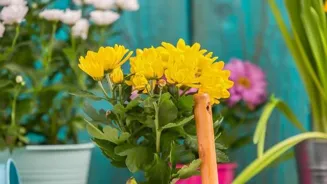Discover 8 Reasons to Start Gardening This Weekend - Your Future Self Will Thank You! Dive into the benefits and joys of gardening
Folks, are you spending your weekends just lazing around scrolling through
your phone? Time to ditch the screen and get your hands dirty! Gardening isn't just for grandmothers anymore; it's a fantastic hobby for everyone, and this weekend is the perfect time to start.
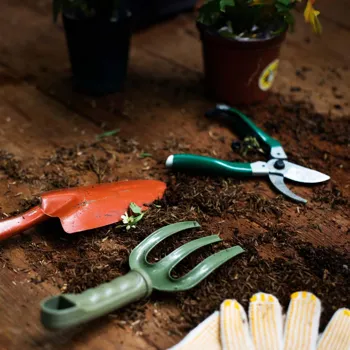
Trust me, your future self will be sending you a big thank you note. Let’s dig into why you should grab a trowel and some seeds right away!
Stress Buster Number One
Life in India can get hectic, right? Office pressures, traffic jams, family responsibilities – it all adds up. Gardening is like hitting the pause button on all that stress.
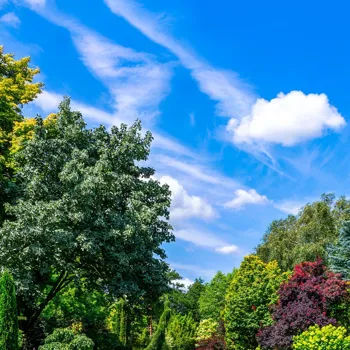
Connecting with nature, feeling the soil between your fingers, and watching tiny sprouts emerge from the earth is incredibly therapeutic. It is like instant peace as you are just connecting with mother earth.
Fresh Air and Vitamin D
We spend so much time indoors, glued to our computers and TVs. Gardening gets you outside, breathing in fresh air and soaking up the sunshine. Vitamin D is super important for a healthy body and happy mood, and gardening is a fun, natural way to get your daily dose.
Plus, you get some exercise without even realizing it! It's a win-win situation.
Home-Grown Goodness
Imagine plucking a juicy tomato straight from your garden or snipping fresh herbs for your morning poha. That’s the magic of growing your own food. You know exactly what's going into your plants – no pesticides or harmful chemicals.
It’s healthier for you and your family, and everything tastes so much better when it’s home-grown.
Budget-Friendly Living
Groceries are getting more expensive by the day. Growing your own vegetables and herbs, even in a small balcony garden, can save you a significant amount of money. Think of all the money you spend on those fancy organic greens at the supermarket.
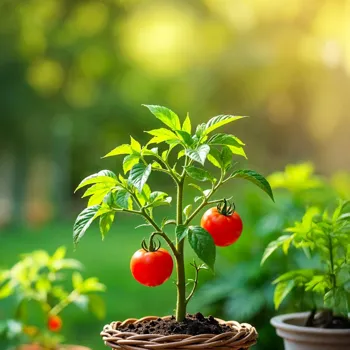
You can grow them yourself for a fraction of the cost!
Boost Your Creativity
Gardening isn't just about planting seeds; it's about designing a beautiful space, experimenting with different plants, and creating something unique. You can choose the colours, the textures, and the arrangements to reflect your personal style.
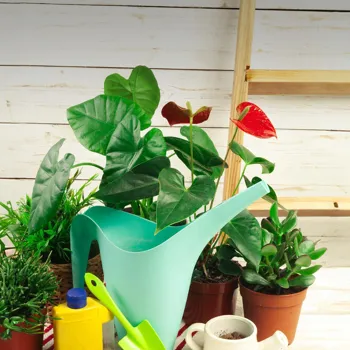
It’s a chance to unleash your inner artist and create a little oasis of beauty.
Connect with Nature (and Your Neighbours!)
Gardening is a great way to connect with the natural world and become more aware of the environment. You’ll learn about seasons, soil types, and the interconnectedness of all living things.
Plus, you'll probably find yourself chatting with your neighbours about gardening tips and tricks, building a stronger sense of community.
Something for the Kids
Start them when they are young in gardening. It's great to have children engaged in gardening during their young ages as this will improve motor skills, coordination along with learning and working together. Gardening will teach children about nature and healthy life.
Bragging Rights, Of Course!
Let's be honest, there's a certain satisfaction in showing off your flourishing garden to friends and family. “Oh, this? Just a little something I grew myself.” Be prepared for compliments on your green thumb and requests for gardening advice.
It's a great conversation starter and a source of personal pride.
Try gardening this weekend for a rewarding experience
So, what are you waiting for? This weekend, swap your remote control for a garden trowel and give gardening a try. Start small, experiment, and don’t be afraid to make mistakes. You’ll be amazed at how rewarding it is, and your future self will definitely thank you for it. Happy gardening!
Starting is Simple: Your First Steps
Alright, you're convinced! But maybe you’re thinking, “Where do I even begin?” Don’t worry, gardening doesn’t have to be complicated. Here’s a step-by-step guide to get you started this weekend: First, assess your space. Do you have a balcony, a terrace, or a small patch of land?
Even a sunny windowsill can work.
Start with easy-to-grow plants like herbs (mint, coriander, basil) or vegetables (tomatoes, chillies, spinach). These are relatively low-maintenance and will give you quick results, which is super encouraging for beginners.
Go to your local nursery and ask for advice on plants that thrive in your area's climate. The nursery staff are usually very knowledgeable and happy to help.
Invest in some basic gardening tools: a trowel, a hand cultivator, a watering can, and some gardening gloves.
You don’t need anything fancy to start. Get some good quality potting mix or soil, depending on what you’re planting. Don’t use regular garden soil in containers, as it can become compacted and doesn’t drain well.
Sunlight is crucial for most plants, so choose a spot that gets at least 6 hours of sunlight per day. Water your plants regularly, but don’t overwater them. Stick your finger into the soil to check if it’s dry before watering. Learning about your plant's sunlight is essential.
Be patient and observe your plants. Watch how they grow, how they respond to watering, and how they react to the weather. Gardening is a learning process, and every little things add up to it.
Beyond the Basics: Taking Your Garden to the Next Level
Once you've got the hang of the basics, you can start exploring more advanced gardening techniques. Consider vertical gardening if you have limited space. You can use wall-mounted planters, hanging baskets, or even repurposed pallets to create a lush green wall.
This is a great way to maximize your gardening space and add visual interest.
Learn about composting. Composting is the process of recycling organic waste (like vegetable scraps and fallen leaves) into nutrient-rich soil.
It’s a great way to reduce your environmental impact and create your own organic fertilizer. There are many composting methods, from simple backyard piles to sophisticated composting bins.
Try companion planting. This is the practice of planting different plants together that benefit each other.
For example, basil repels pests that attack tomatoes, and marigolds deter nematodes (tiny worms) in the soil. Companion planting is a natural way to improve plant health and yield. Experiment with different types of plants, like flowers and fruits.
Once you’re comfortable with the basics, branch out and try growing more challenging species.
Join a local gardening group. Connecting with other gardeners is a great way to learn new tips and tricks, share your successes and failures, and get inspiration.
Many cities have gardening clubs or societies that offer workshops, plant swaps, and garden tours. The gardening community is usually very welcoming and supportive.
Start saving seeds. Once your plants start producing seeds, you can collect them and save them for next year’s planting season.
This is a great way to save money and preserve heirloom varieties. Make sure to dry the seeds thoroughly before storing them in a cool, dark place. This will help with the plants for the future.
Gardening in Small Spaces: Balcony and Terrace Gardens
Many city dwellers don’t have access to a large garden, but that doesn’t mean you can’t enjoy the benefits of gardening. Balcony and terrace gardens are a great way to bring nature into your urban home. The key to successful small-space gardening is to choose the right plants and containers.
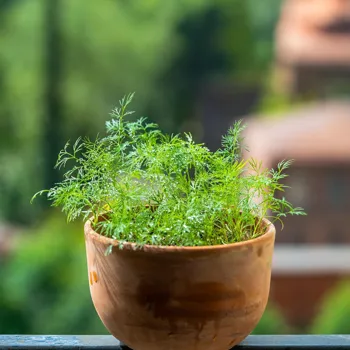
Opt for compact or dwarf varieties of vegetables and fruits. These are bred to be smaller and more productive in containers. For example, you can find dwarf tomato plants, bush beans, and miniature peppers that are perfect for container gardening.
Choose lightweight containers made of plastic, fiberglass, or resin. Heavy terracotta pots can put a strain on your balcony or terrace structure. Make sure your containers have drainage holes to prevent waterlogging. Vertical gardening is essential for balconies and terraces.
Use climbing plants like vines to create a green wall, or hang planters from railings.
Consider using self-watering containers. These containers have a reservoir of water that the plants can draw from as needed. This is especially helpful if you are busy or tend to forget to water your plants.
Grow herbs in hanging baskets near your kitchen door to make it easy to snip fresh herbs for cooking. Consider the microclimate of your balcony or terrace. Some areas may be more exposed to wind and sun than others. Choose plants that are well-suited to the specific conditions of your space.
Add colour with flowering plants. Even a small balcony garden can be transformed into a vibrant oasis with colourful flowers. Choose flowers that attract pollinators like bees and butterflies to create a buzzing ecosystem in your urban space.
The most important of all: Keep checking for how the plants are growing.
Common Gardening Mistakes (and How to Avoid Them)
Even experienced gardeners make mistakes, so don’t be discouraged if you encounter some challenges along the way. Here are some common gardening mistakes and how to avoid them: Overwatering or underwatering. This is one of the most common mistakes.
Overwatering can lead to root rot, while underwatering can cause plants to wilt and die. Check the soil moisture before watering and adjust your watering schedule based on the weather and the plant’s needs.
Planting in the wrong location.
Make sure to choose a location that provides the right amount of sunlight for your plants. Check the plant tag or seed packet for specific sun requirements. Using the wrong type of soil. Regular garden soil can become compacted in containers and doesn’t drain well.
Use a good quality potting mix or soil specifically formulated for containers.
Not fertilizing your plants. Container-grown plants need regular fertilization to replenish nutrients in the soil. Use a balanced fertilizer according to the package instructions. Ignoring pests and diseases.
Regularly inspect your plants for signs of pests or diseases. Treat any problems promptly with organic or chemical solutions.
Planting too densely. Give your plants enough space to grow to their mature size. Overcrowding can lead to poor air circulation and increased risk of disease.
Pruning incorrectly. Pruning is essential for shaping plants, removing dead or diseased branches, and promoting flowering or fruiting. The most essential aspect is that planning is vital as time is involved.
Gardening with Kids: A Fun Family Activity
Gardening is a wonderful activity to do with kids. It’s a fun way to get them outside, teach them about nature, and encourage them to eat healthy foods. Here are some tips for gardening with kids: Let them choose the plants. Give your kids a say in what you’re growing.
This will make them more interested in the gardening process. Opt for fast-growing plants. Kids are impatient, so choose plants that will produce results quickly. Radishes, sunflowers, and cherry tomatoes are good choices.
Make it a sensory experience. Gardening is a feast for the senses.
Let kids touch the soil, smell the flowers, and taste the vegetables. Give them their own tools. Kids love having their own tools to use. Get them a small trowel, watering can, and gardening gloves. Create a themed garden.
Make gardening even more fun by creating a themed garden, such as a pizza garden (with tomatoes, basil, and oregano) or a butterfly garden (with flowers that attract butterflies).
Turn weeding into a game. Weeding doesn’t have to be a chore.
Turn it into a game by seeing who can pull the most weeds or who can find the biggest weed. Involve them in the harvest. Let kids help harvest the vegetables and fruits when they’re ripe. This is a great way to teach them about where their food comes from.
Gardening with kids can be a bit messy, but it’s worth it! The most important thing is to have fun and create lasting memories.
AI Generated Content. Glance/InMobi shall have no liability for the content